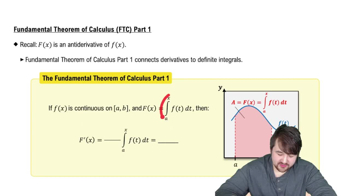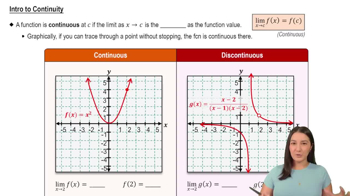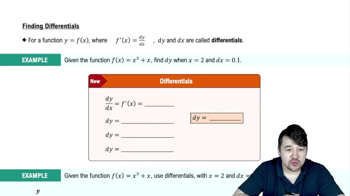11–18. Rolle’s Theorem Determine whether Rolle’s Theorem applies to the following functions on the given interval. If so, find the point(s) guaranteed to exist by Rolle’s Theorem.
ƒ(x) = x (x - 1)² ; [0, 1]
 Verified step by step guidance
Verified step by step guidance Verified video answer for a similar problem:
Verified video answer for a similar problem:



 5:53m
5:53mMaster Finding Differentials with a bite sized video explanation from Patrick
Start learning